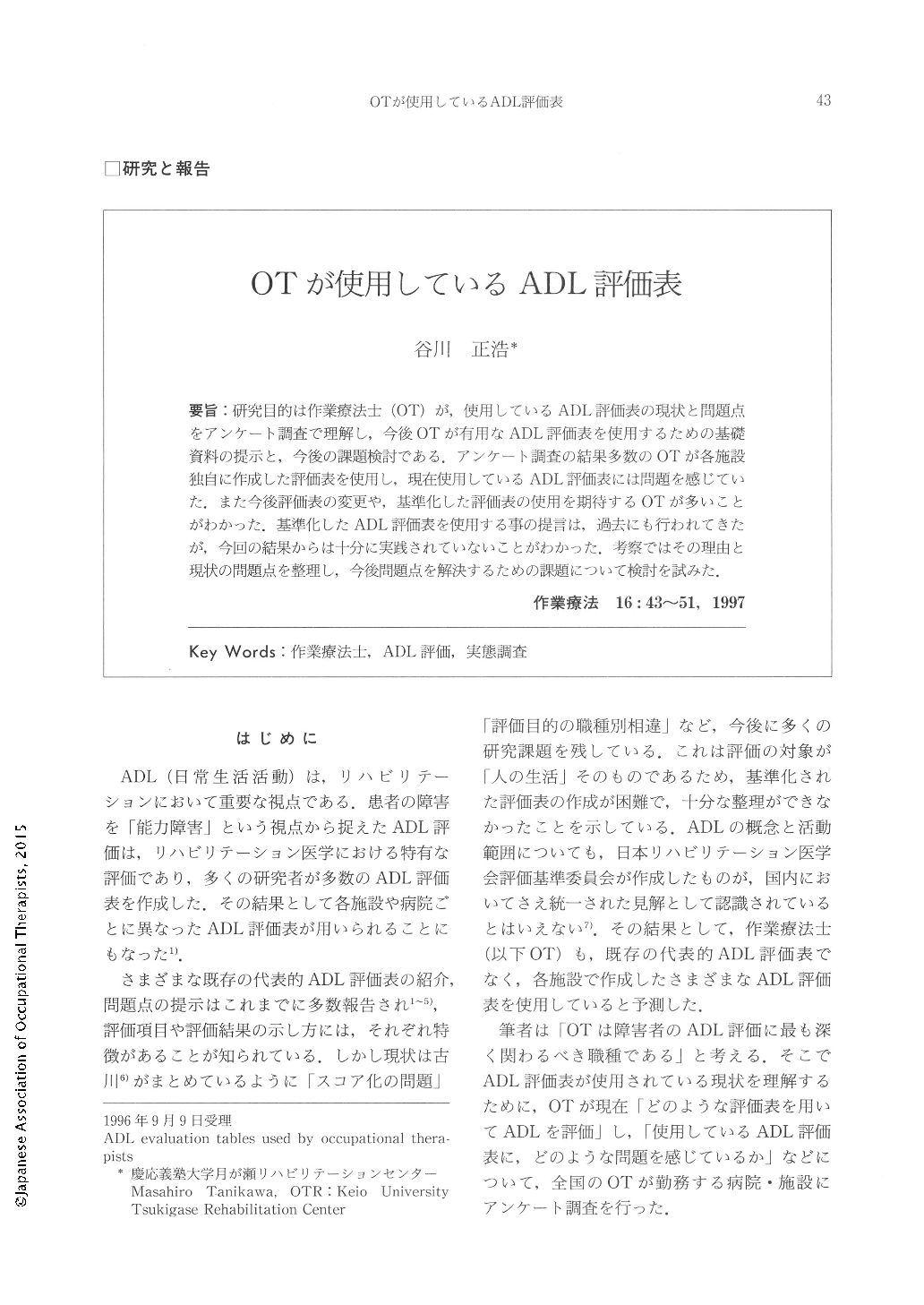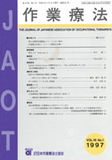Japanese
English
- 販売していません
- Abstract 文献概要
- 1ページ目 Look Inside
- 参考文献 Reference
- サイト内被引用 Cited by
要旨:研究目的は作業療法士(OT)が,使用しているADL評価表の現状と問題点をアンケート調査で理解し,今後OTが有用なADL評価表を使用するための基礎資料の提示と,今後の課題検討である.アンケート調査の結果多数のOTが各施設独自に作成した評価表を使用し,現在使用しているADL評価表には問題を感じていた.また今後評価表の変更や,基準化した評価表の使用を期待するOTが多いことがわかった.基準化したADL評価表を使用する事の提言は,過去にも行われてきたが,今回の結果からは十分に実践されていないことがわかった.考察ではその理由と現状の問題点を整理し,今後問題点を解決するための課題について検討を試みた.
The objectives of this research project are to study the current ADL evaluation tables currently used by occupational therapists, determine the problems with them and present basic data to aid in using more useful ADL evaluation tables. Based on those results, this project will study the direction in which the modification of ADL evaluation tables, used by occupational therapists, should be developed.
This project used a questionnaire survey as its method of investigation. Questionnaire forms were mailed to occupational therapists at 300 facilities. Valid responses were received from 209 facilities.
The results revealed that there are more occupational therapists who are using evaluation tables that have been prepared by the individual facilities, themselves, than those using the existing general-use evaluation table. Furthermore, the survey revealed that many occupational therapists feel that there are problems with the evaluation tables they are currently using and that there are many occupational therapists who feel that the evaluation table needs to be changed or hope that a standardized ADL table will be available.
Recommendations to use a standardized ADL table have been made heretofore. However, the results of the current study revealed that these recommendations have not been adequately put into practice. In the future, amid the greater importance attached to local medical care, and also in order to have more people beyond those of the heretofore occupations and positions be involved in the ADL of disabled people, individual occupational therapists must make the best use of existing evaluation tables and express their opinions regarding them.

Copyright © 1997, Japanese Association of Occupational Therapists. All rights reserved.


